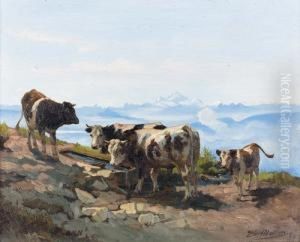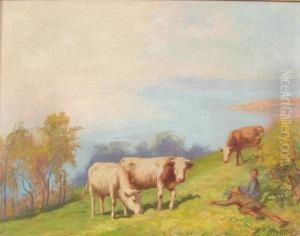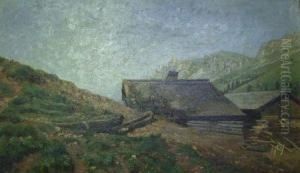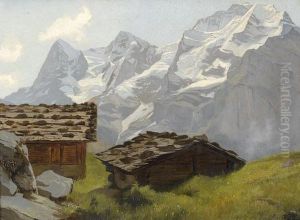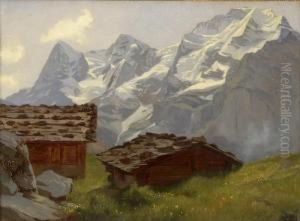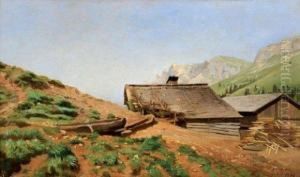Edouard Louis Aug. Metton Paintings
Édouard Louis Auguste Metton was a French artist known for his landscape paintings, born in 1849 in Lyon, France. Metton was active during a period that saw the rise of Impressionism, although his own work remained more aligned with the traditions of the Barbizon School and academic painting. He is often remembered for his detailed depiction of rural French landscapes and city scenes, which were executed with a certain fidelity to the naturalistic colors and light of his subjects.
Metton received his artistic training at the École nationale supérieure des beaux-arts de Lyon, where he honed his skills in drawing and painting. He later moved to Paris to further his education and career, studying under the tutelage of influential artists of the time. These experiences provided him with the technical proficiency and artistic sensibility that would characterize his later works.
Throughout his career, Metton exhibited his paintings in various salons and exhibitions, gaining recognition and accolades for his contributions to French art. His work was appreciated for its clarity, attention to detail, and the serene ambiance it often conveyed. While Metton was not at the forefront of the avant-garde movements that dominated the art world in the late 19th and early 20th centuries, his commitment to the representation of the French countryside provided a valuable counterpoint to the rapidly changing art scene of his time.
Édouard Louis Auguste Metton passed away in 1927. Although he may not be as widely recognized as some of his contemporaries, his work continues to be appreciated by art historians and collectors for its portrayal of the French landscape and as a testament to the enduring qualities of traditional painting techniques in the face of modernist innovations.
